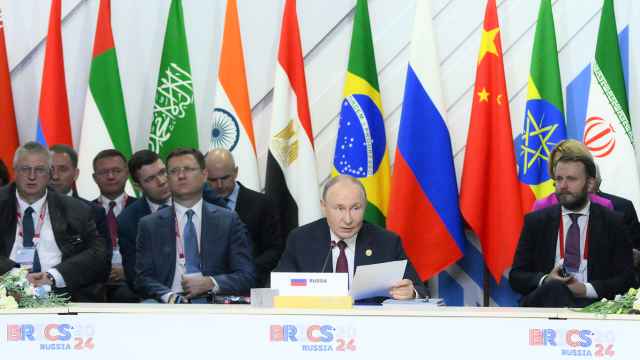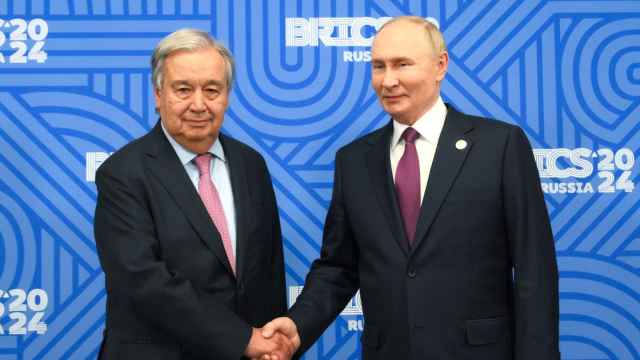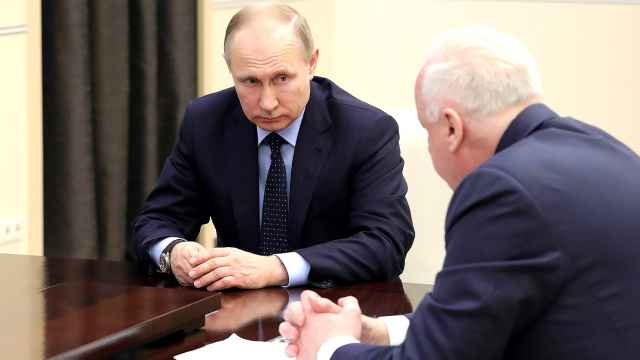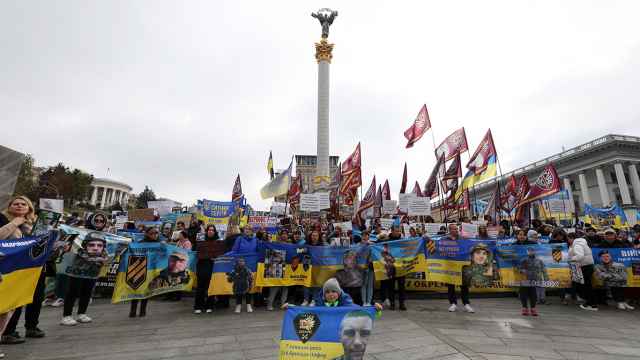Prime Minister Vladimir Putin will not likely lead Russia into a period of Brezhnev stagnation. He is focused on capital investments, research and development, managing competitive threats from abroad and increasing the country’s bottom line. Putin is acting like the incoming CEO of Russia Inc.
Putin’s transformation from tough-talking political leader to corporate executive extolling Russia’s value to investors and shareholders has already begun. Speaking at last week’s VTB investment conference, he tried to reassure worried investors with promises of fiscal discipline, more opportunities to invest in strategic resource companies, like the Rosneft-Exxon agreement and thousands of new technology projects to expand the economy. He is building a new management team, including former Finance Minister Alexei Kudrin. His goal has been to inspire stakeholder confidence that Russia is again in good hands under his leadership.
For Putin, the C-suite decision on the future of the tandem rule was simple. Did President Dmitry Medvedev have the leadership skills to advance his economic policy agenda through an increasingly troubled outlook for the world economy? For the political and business constituencies that comprise Russia, the only short-listed candidate with the experience and reputation for a steady hand on the helm was, not surprisingly, Putin.
The public explanation offered by Putin and Medvedev that plans for rotating the leadership were made four years ago was clearly suspect. But as blatantly ham-handed as this change of power was, there was a collective sigh of relief that the Kremlin guessing game was finally over.
For a business or a nation, certainty is a necessary condition to properly function and prosper. Medvedev, even with his forward-thinking economic and reform initiatives, was always seen as standing in the long shadow of Putin. Medvedev’s credibility suffered as a result. A lack of confidence in a president or CEO’s leadership creates an unacceptable state of uncertainty for the political, business and investment communities.
Recently, HP’s board sacked its CEO after a series of missteps in introducing a strategic plan to regain its position in the highly competitive high-tech marketplace. The board appointed former eBay CEO and an HP board member, Meg Whitman, instead. Interestingly, Whitman publicly endorsed the former CEO’s plan. Here, too, the loss of confidence was not in the plan but in the leader.
HP knows that being nimble, having a good strategy and strong leadership are competitive advantages needed to survive in a fiercely competitive global market.
Likewise, expanding Russia’s manufacturing and technology sectors will be critical to managing strong competition from China, India and other developed countries.
While Russia’s economy is stable, the current economic outlook for Russia is troubling. HSBC chief economist Alexander Morozov told Bloomberg that “Russian manufacturers face lasting stagnation” as a result of persistently weakening foreign demand for Russian goods. Adding to the bleak outlook, the World Bank lowered its forecast for growth in gross domestic product to 4 percent from 4.4 percent. Russia’s capital markets have been losing value and the ruble struggles against the dollar and euro. As global demand shows signs of weakening, energy prices will likely fall.
These economic challenges give Putin few options but to advance the Medvedev administration’s economic growth strategy. Building shareholder value in Russia for businesses, consumers and foreign investors will be critical. The government’s plan to privatize more state holdings will develop revenues, taxes and jobs. Supporting Russia’s admission into the World Trade Organization will add much-needed competition and predictability to the marketplace while decreasing risk for foreign investors.
Putin’s critics and admirers acknowledge that he has become more pragmatic. The change is visible.
Growing Russia’s economy will be tough as euro-zone problems mount and the potential for a double-dip global recession increases. Removing barriers to Russia’s economic growth like weak rule of law and rampant corruption will become imperative. The next CEO of Russia Inc. will need to make hard decisions and demonstrate the gritty leadership that his predecessor lacks.
Tom Thomson is a Washington-based international business and strategic communications consultant.
A Message from The Moscow Times:
Dear readers,
We are facing unprecedented challenges. Russia's Prosecutor General's Office has designated The Moscow Times as an "undesirable" organization, criminalizing our work and putting our staff at risk of prosecution. This follows our earlier unjust labeling as a "foreign agent."
These actions are direct attempts to silence independent journalism in Russia. The authorities claim our work "discredits the decisions of the Russian leadership." We see things differently: we strive to provide accurate, unbiased reporting on Russia.
We, the journalists of The Moscow Times, refuse to be silenced. But to continue our work, we need your help.
Your support, no matter how small, makes a world of difference. If you can, please support us monthly starting from just $2. It's quick to set up, and every contribution makes a significant impact.
By supporting The Moscow Times, you're defending open, independent journalism in the face of repression. Thank you for standing with us.
Remind me later.





